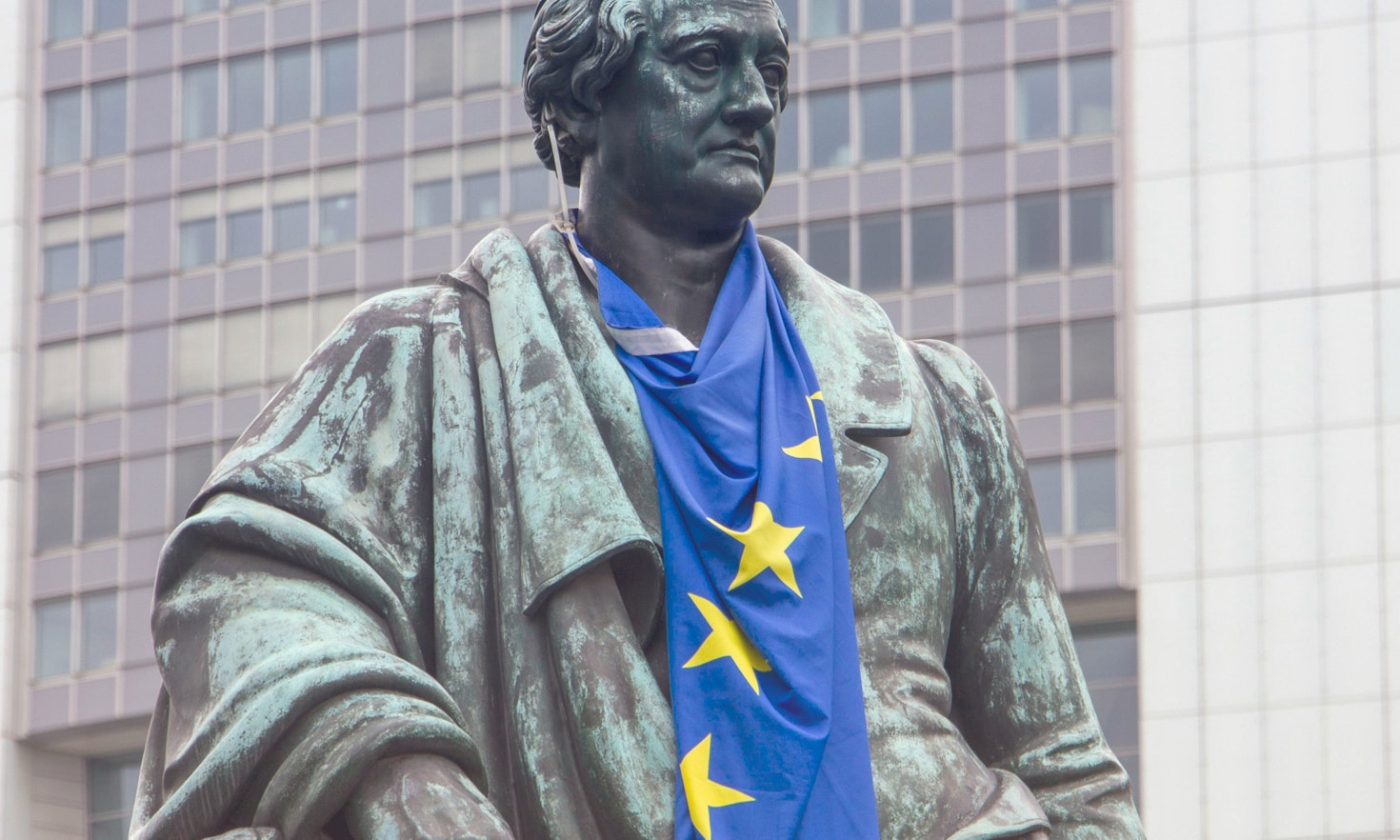European elections in a chaotic Germany

It’s time for another round of elections to the European Parliament in June 2024, as this five-year term comes to a close. Much has happened since 2019 and the first decisive developments are already influencing the upcoming ballot.
Since 1979, the European Parliament has been elected by popular vote, and its powers have been increased by the Treaties of Maastricht (1992) and Lisbon (2009). Although its position in the European quasi-constitutional order is criticized for its weaknesses, the European Parliament possesses several relevant competences together with the Council of the European Union,1 such as the right to vote on European legislation and the budget proposal, as well as the final say and parliamentary control over the members of the European Commission. Therefore, the upcoming elections to select 720 parliamentarians hold a significant role in shaping European politics.
The German people are entitled to a total of 96 seats out of this high number, which is the largest possible delegation of a Member State. These seats will be assigned to parties based on the proportion of votes they received for their candidate lists. Notably, 16 and 17-year-olds will be eligible to vote for the first time. Meanwhile, it may be the last time that smaller parties will benefit from the lack of an explicit electoral threshold, as parliament has approved a two-percent threshold for the election following the current one. Nevertheless, the most significant modification concerns the German party system itself, which has been significantly impacted by notable events and developments over the past four years.
Back in 2019, during Angela Merkel’s (CDU: Christian Democratic Union) tenure as Chancellor, the coalition between the centre-right CDU/CSU (Christian Social Union)2 and center-left SPD (Social Democratic Party Germany) lost numerous voters to the Greens, due to climate change, and to the AfD (Alternative for Germany), due to the refugee crisis. The resulting loss, which came in at over ten percentage points, pushed the SPD into a process of renewal that paved the way for Olaf Scholz to become chancellor. At the same time, he and his Social Democrats benefited from Merkel's decision not to seek a fifth term, his positive reputation as a crisis manager during the pandemic-induced economic paralysis, and the poor performance of his Christian Democrat and Green Party opponents. The coalition of SPD, the Greens, and FDP (Free Democratic Party), commonly referred to as the “traffic light coalition”, aimed to “dare more progress”, but within months of taking office was confronted with the Russian invasion of Ukraine, the withdrawal from the use of Russian energy, and an inflation-driven economic crisis. Although the government has completed many projects and is on track to complete almost all of them this term, its public image has been damaged by poor public relations, populist opposition campaigns and controversial debates on certain issues.
Under these favorable circumstances, the two main opposition parties are gaining popularity. The CDU/CSU, formerly in government, has adopted a strategy of harshly criticizing Scholz and his ministers, even partially adopting the populist narratives of the AfD. This has allowed them to become dominant in the polls and win nearly all state elections since 2021 under their chairman Friedrich Merz (CDU). The AfD gained from the shortcomings of the governing coalition and the populist tendencies of the Christian Democrats. Their extreme right-wing positions are increasingly deemed acceptable to insecure citizens seeking leadership in times of crisis. The party achieved victories in state elections alongside the CDU/CSU and doubled its polling figures, ultimately becoming the second largest party. However, the smallest opposition party, Die Linke (The Left), did not benefit from this situation by criticizing the traffic light coalition from the left. The only aspect that gained attention was the departure of Sarah Wagenknecht, one of their most popular politicians.
In addition to the aforementioned, two other parties may emerge in the near future. On one side, there are the Freie Wähler (Free Voters), a liberal-conservative umbrella organization for communal voter groups, which achieved remarkable success in the Bavarian elections due to their right-wing populist chairman, Hubert Aiwanger. Despite his party’s representation in only one other state parliament and repeated failures to enter the federal parliament, Aiwanger has expressed his intention to change that. On the other hand, Sarah Wagenknecht has left Die Linke and announced her intention to form a new party: the Bündnis Sarah Wagenknecht (BSW: Alliance Sarah Wagenknecht). The party’s ideology is designed to be right-wing on migration, left-wing on the welfare state, and liberal on economic issues. However, Wagenknecht and her companions are still building up their party, and the requirements of German party law are demanding. It is unknown whether these newcomers will be able to maintain their momentum at the ballot box.
All the events leading up to the 9th of June will determine the outcome of the European election in the Germany. This election is crucial for many, a test for some and a challenge for others. Although it can be challenging to predict results in electoral research, especially when they lie in the future, current trends provide some space to formulate hypotheses. The three coalition partners are expected to perform worse than in 2021, though not necessarily in relation to 2019. The Greens and Free Democrats may experience a disastrous night with heavy losses, while the SPD may even gain after its devastating defeat last time. In the opposition camp the CDU/CSU can expect to maintain their results, while the AfD is currently on its way to double their vote share and Die Linke should prepare for slight losses. While the Freie Wähler can probably gain some support as well, the biggest uncertainty comes from the BSW. If it doesn’t collapse or fail to register properly, it could immediately gain a lot of votes and become the second protest party in German politics, or it could fall short of the massive expectations currently placed in it. Ultimately, only after the polls have closed will we know for sure. In view of the potential gains for Eurosceptic parties such as AfD and BSW, the importance of having committed European voices in the Parliament cannot be overstated. Indeed, without a strong representation of those invested in our common European project, the road to a more cohesive and unified future becomes a much harder journey.

Citation
This content is licensed under a Creative Commons Attribution 4.0 International license except for third-party materials or where otherwise noted.






